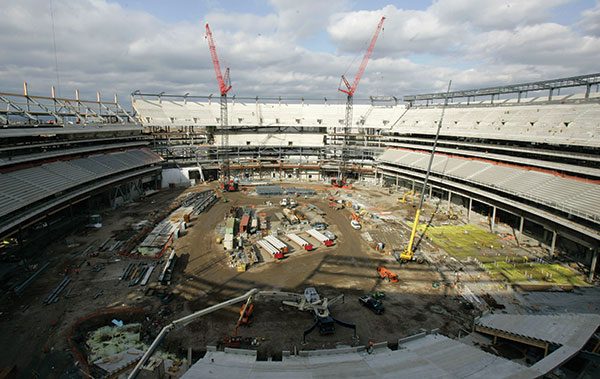
Analyzing the economic climate is a funny thing. We are obsessed with leading economic indicators, including unemployment rates, housing starts and the like. But in New Jersey—and every other state struggling to keep its economic engine on track—it’s hard to get a handle on exactly where we are and where we are headed, even with the best of data to guide our thinking.
Certainly, the economic indicators don’t mean much to an unemployed parent in Camden or Hackensack who is struggling to keep his home or send her kids to college. Do such individuals care if the New Jersey jobless rate declines by half a decimal point?
Still, to try to get some insight into the numbers on the Jersey economy, we spoke to Patrick O’Keefe, the director of economic research at J.H. Cohn and a regular contributor to Bloomberg Radio.
According to O’Keefe, there is a discernible difference in the economic conditions in the northern and southern parts of the state. The differences start with the real estate market, which, says O’Keefe, “is marginally better in the northeastern part of the state, Hudson County specifically.” He credits growth in that region to “spillover from Manhattan.” On the other hand, he says, “growth in other parts of the state in both residential and non-residential still remains very weak. In the residential sector specifically, it is still near historical lows in resale and new sale.”
That’s particularly true in South Jersey, where, O’Keefe says, the “economic malaise” has taken hold to a greater degree than in North and Central Jersey.
In terms of job growth, O’Keefe says, “We have about 3 percent fewer jobs today than in January of 2000. We just don’t have much in the way of construction going on, and occupancy rates remain very low.” Again, South Jersey is hit hardest, thanks in part to recent history. “For the last 25 years,” O’Keefe says, “we have seen more dynamic residential growth in the southern part of the state, from Mercer [County] on down. Therefore, in terms of decline, it was a higher place from which to fall.”
So which sectors suggest the best prospects for job growth? “Leisure and hospitality were most noteworthy in the recent data in terms of growth, because tourism activity is picking up,” O’Keefe says. “Health care has remained steady throughout and has been a pretty good source. Other than that, we have had mediocre growth in New Jersey. There is nothing to point to that is leading us out of where we are. Construction is probably the poorest industry right now and has a long way to go.”
In many ways, construction activity, or lack thereof, is the most powerful way to judge the New Jersey economy. In robust times, we’ve seen busy construction sites from Newark to New Brunswick to suburban South Jersey areas like Vineland. While there have been some exceptions, like the massive Virtua Hospital project in Voorhees and the construction jobs generated in recent years by the Prudential Center in Newark and New Meadowlands Stadium in East Rutherford, we’ve seen nowhere near the development activity that New Jersey needs to fuel a recovery. Clearly, many parties, including banks, remain reluctant to invest in uncertain times.
“For those struggling and looking for a job, the picture remains bleak,” O’Keefe says. “Roughly 45 percent of the unemployed have been out of a job for six months or more. That number understates the true problem in the job market. We have a high level of discouraged job seekers who have stopped looking because there are so few opportunities.”
So whether you read the data or just ponder the plight of the chronically unemployed, New Jersey’s economic forecast is cloudy at best. One can only hope for a silver lining that eventually brings brighter days. But don’t expect that lining to appear in the immediate future.
